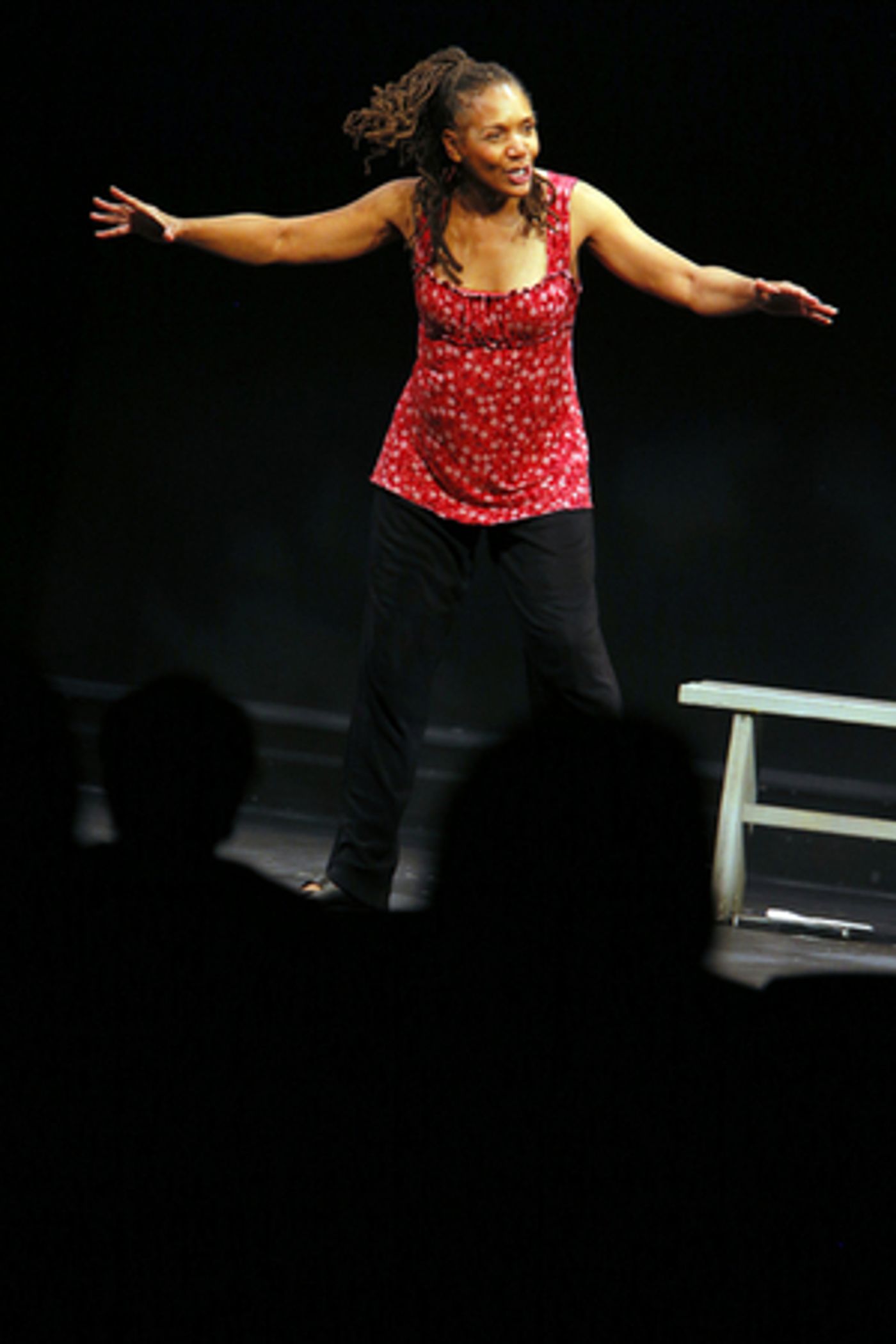Review: THE RESURRECTION OF ALICE at The Essential Theatre
"The Resurrection of Alice" is part of The Essential Theatre's Encore Performances in Virtual Space

TW: Adult themes, rape, abuse, child marriage
One of the things I love about theater is how it can give life to issues in a way that helps people understand them in their complexity. In my professional capacity, I've worked in gender rights, and there are inevitably some dark places in that field, including child marriage. Sadly, it's far too easy for people to dismiss this as something far away, either in the past or physically distant, though the research suggests otherwise; in recent years, we've seen a push to raise the minimum age for marriage in most states within the US, but the laws being challenged aren't relics of a past age - this is something still occurring in our backyards today. Additionally, psychology has long established that mass tragedies lose their impact in the telling (something we've unfortunately seen in watching the responses to the death toll of Covid-19 this year), but that one personalized story can conversely have a huge impact. Perri Gaffney's The Resurrection of Alice aims for that impact by turning the abstract horror of child marriage into a story about one woman in the United States in the 20th Century, giving us the nuance and insights often left out of reports and studies while reminding us that this issue isn't as far away or back as we'd like to believe.
Alice is a bright, curious girl, the eldest of four in a family whose poverty is only understood when it's thrown into relief against the aid from a local benefactor, Mr. Tucker. Tucker hires Alice's father and provides the family with additional food, spare change, birthday presents, and access to school for Alice and her siblings. At school, Alice proves to be a vivacious learner, and catches the attention of local boy, Isaac, who becomes her study partner in pursuit of higher education and opportunities. Alice earns a full scholarship to college, but her joy is immediately dashed when her parents inform her that she is promised to wed Mr. Tucker after graduation; the kindness he has shown her family is really part of an arrangement: work for her father, education for Alice and her siblings, extra food for the family, all for the price of Alice. A bereft Alice contemplates running off, but has been told her whole life that it's necessary to make sacrifices for the good of everyone else; she knows that she must marry this man for the good of her family. What follows is Alice's life with a man she never consented to marry (even at the wedding itself), with him holding her family's wellbeing over her head when she refuses to submit to his wishes. Tucker even bribes religious figures to exert their influence over Alice, and her parents tread the awkward, painful line of remorse and pressure, as they regret their actions but are also still bound by their promises to Tucker. We watch as Alice navigates this difficult world with an increasingly irate husband; Tucker has always been abusive, but his behavior becomes more overt over the course of their marriage: he enlists a doctor to help him drug and rape Alice in her sleep, he threatens her family's livelihood to secure her acquiescence, he padlocks the piano she enjoys playing, and he bribes another pastor to bar her from escaping him to play and sing at church. And yet, through it all, we see flashes of defiance from Alice: we watch her as she asserts herself first in her head and then wonderfully aloud, as she pursues hobbies and learning without her husband's knowledge, and as she even begins to use his wealth to help her friends and family on her own terms. We watch her regain herself and eventually leave Tucker, once again reclaiming the girl she was and the woman she was meant to be.
Gaffney, who also stars in this one-woman production, has done a tremendous amount of research for her script, and it clearly pays off. Alice's tale, though tragic, is also sympathetic to Alice's family and town's circumstances. As is the case for Alice, families who are impoverished and offered a lifeline often have no other option, and this has proven to be the source for child marriages for centuries (bride prices were common, especially when marriage was generally regarded as an economic arrangement rather than a romantic one). Her friends, who come from equally poor backgrounds, show a range of other options available to those in poverty, further complicating the situation - is Alice, as a child bride, better off than her friends who turn to prostitution? Is there really a difference in their circumstances? None of this nuance absolves Tucker or Alice's parents for participating in such a barbaric arrangement, but it does make their decision easier to understand, especially when we see how Tucker wields his power over those who displease him (when a teenaged Alice is caught kissing Isaac, Tucker not only fights the boy, he also fires his father from his mill, leaving the family in dire financial straits). At the same time, this nuance is also used to effectively show the true impact of this situation. We often worry about abuse in situations where it's violent, overt, bloody, but one of the masterful aspects of this performance is that it shows us child marriage and abuse in its more subtle, insidious form. Make no mistake: Tucker is an abuser, but - because he exerts his power over his wife through his influence over her family, because he rapes her when she's unaware, because he presents as patient and doting even as he enlists others to pressure her on his behalf - we don't always recognize it for what it is.

And yet, we, as the audience, are clued in on a lot of this by Gaffney's performance. Her portrayal of Alice over the course of her life is nuanced, physical, and incredibly engaging. We fully understand Alice's mind, how she processes and reacts to her circumstances, not just through her words, but through her facial expressions, voice inflections, and even the tiniest movements. We see, though Gaffney's presentation, the impact of the indignities and abuses Alice experiences, how she loses herself, and how she finds herself again. But we also get to see Alice beyond her victimhood - we see a girl and woman who is bright, loving, and funny, who cares deeply for her family and friends, and who has strong senses of curiosity and humor. For a one-woman show without a set or props beyond a single table, this production is packed with drama, emotion, and heart, all through Gaffney herself. She even manages to produce distinct enactments of the people in Alice's life, showing us an array of characters as Alice herself sees them; each portrayal has a unique, identifiable voice and mannerism, showing off Gaffney's range as an actress as well as a writer. The script itself is beautiful, incorporating into Alice's tale poetry, history, philosophy - all things that give the audience a sense of who Alice is as well as a way to connect with her story.
My main critique, though, is the pacing of the show. The shifts between each scene and even the acts aren't marked by anything - no lighting cues, no significant stage movements, barely even a pause. Although Gaffney often begins each scene by announcing the date or Alice's age, it's so quick that it feels a bit jarring and takes a moment for the audience to reorient. More importantly, though, it seems to steamroll over the impact of the previous scene, rather than giving it a moment to breathe. I'm not sure if this decision is from Gaffney's script or was made by one of the directors (Sherri Crockett originally directed the production, and additional direction and dramaturgy was provided by Shona Tucker and Talvin Wilks), but it did take away from an otherwise excellent performance. This was particularly unsettling toward the end, when we shift away from Alice's perspective to Tucker and her younger daughter, who provide an outsider account of her "resurrection" (the moments when she left Tucker and rebuilt herself), before returning back to Alice for the show's conclusion.
.jpg?format=auto&width=1400)
My other main criticism is about the lighting, which I debated including here, but I decided it couldn't be left completely without remark. I understand the struggles of filming live performances - what works on stage doesn't necessarily work on camera. But the lighting in this production is so poor, it's distracting. I kept getting pulled out of Gaffney's performance because she's an expressive actress, and her natural movements across the stage led to her walking into spaces where she'd be entirely washed out; it's difficult to appreciate her acting when a significant portion of it is literally blotted out. The lighting gives the feeling that the recording is an illicit video taken during a live performance, not a professional production recorded with the intention of being presented. (Note: this was a live performance, but was taped as part of a presentation of the artist's work.)
Overall, The Resurrection of Alice is a well-researched, superbly acted play. There are some flaws, but the production is well worth seeing for its heart, empathy, and even humor. It will hopefully both entertain audiences and encourage them to become advocates for children like Alice.
The Resurrection of Alice is available for streaming as a Pay-What-You-Can ON DEMAND performance through January 10th, 2021. Tickets are available through The Essential Theatre's website. Performance is recommended for ages 17 and up due to adult themes, and sexually suggestive situations.
Photos by Sharon C. Farmer
Reader Reviews
Videos

